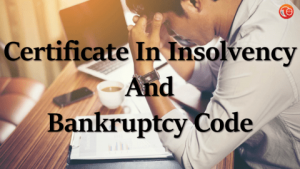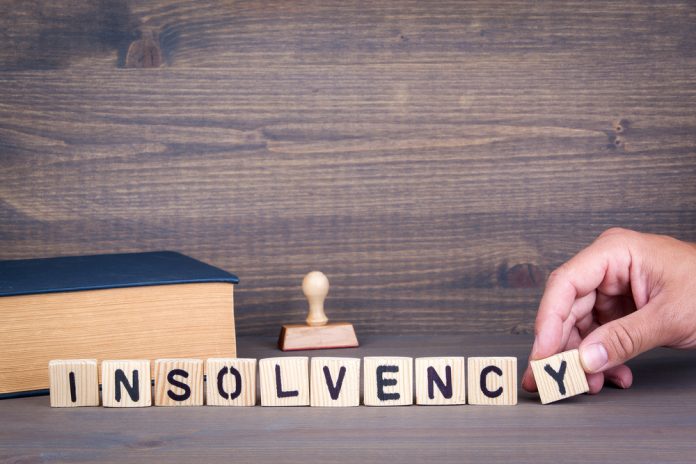This article has been written by Yash Dhawan pursuing the Certificate Course in Insolvency and Bankruptcy Code from LawSikho.
Table of Contents
Introduction
The general taxation regime of India is divided into two kinds of taxes, that is, direct taxes and indirect taxes. Direct taxes are the ones that are levied on the income of the citizens and other entities as well, while indirect taxes are the ones that are levied on the sale or purchase of goods and services. In the case of direct taxes, the burden to pay tax lies on the individual or the assessee directly. On the other hand, in the case of indirect taxes, the burden of collecting and depositing tax lies on the sellers of goods and services instead of the individuals or consumers. The Constitution of India gives a right to both the Central and State Governments to levy and collect taxes.
In order to carry out the objectives of IBC, many amendments have been made to different statutes, such as the Companies Act, the Recovery of Debts Due to Banks and Financial Institutions Act, 1993 (RDBFI), Securitisation and Reconstruction of Financial Assets and Enforcement of Security Interest Act, 2002 (SARFAESI), etc. Income Tax Act also happens to be one of these acts wherein amendments were made to keep the provisions in line with the Insolvency and Bankruptcy Code. Hence, it becomes pertinent to analyze the relationship between IBC and Income Tax Act in order to examine its impact on not only the taxpayers but also other stakeholders in the corporate world, that is, creditors, corporate debtor, resolution applicant, and the liquidator as well. This article will throw light on the interplay between the two frameworks with special emphasis on the case of Leo Edibles & Fats Ltd. v. The Tax Recovery Officer (Central) IT Dept.
The interplay between IBC and income tax laws
While analyzing the interplay between IBC and income tax laws, the main question to ponder upon is whether IBC has an edge over any income tax laws, that is, whether the provisions of IBC will have an overriding effect in case there arises any inconsistency with the income tax laws. The same can be elucidated upon by analysing this question by bringing into its purview Section 238 of IBC. This section provides that –
“The provisions of this Code shall have the effect, notwithstanding anything inconsistent therewith contained in any other law for the time being in force or any instrument having effect by virtue of any such law.”
In order to establish whether or not the provisions of IBC would override the provisions of tax laws, it becomes pertinent to back that up with the landmark judgement of the Supreme Court of India. In the case of Pr. Commissioner of Income Tax v. Monnet Ispat and Energy Ltd., the apex court held that Section 238 of IBC will have the overriding effect on anything that is inconsistent provided in any statute, which also includes the Income Tax Act.
The facet pertaining to the applicability of the Limitation Act, 1963 to various proceedings under IBC has been much discussed. The Limitation Act provides for a specific time period for limiting various steps in a lawsuit and other proceedings as well. In the cases of Speculum Plast Private Limited v. PTC Techno Private Limited, Parag Gupta & Associates v. BK Educational Services Private Limited and Ashlay Infrastructure Private Limited v. LDS Engineers Private Limited and Innoventive Industries Limited v. ICICI Bank & Anr, the National Company Law Appellate Tribunal (NCLAT) collectively held that in the absence of any specific provisions pertaining to the applicability of Limitation Act on the proceedings under IBC, it is open for the courts to analyse and decide whether or not Limitation Act shall apply to those proceedings. Such a decision would have resulted in piling up of insolvency applications and other related suits and appeals. For the purpose of avoiding this, Section 238A was inserted into the Insolvency and Bankruptcy Code. This section provides that –
“The provisions of the Limitation Act, 1963 shall, as far as may be, apply to the proceedings or appeals before the Adjudicating Authority, the National Company Law Appellate Tribunal, the Debt Recovery Tribunal or the Debt Recovery Appellate Tribunal, as the case may be.”
This section clearly implies that the Limitation Act shall apply as soon as any proceedings are constituted before any authority. This also showcases how laws are interconnected, with the Limitation Act being connected to Insolvency and Bankruptcy Code and Insolvency involvement with the Income Tax Act creates a relationship amongst various legislations.
Leo Edibles & Fats Ltd. v. The Tax Recovery Officer (Central) IT Dept.
Facts of the case
The petitioner, that is, Leo Edibles & Fats Ltd. filed a petition before the High Court. The petition was filed on the grounds that the sub-registrar of Erragadda, Hyderabad did not register its purchase of an immovable property when the liquidation proceedings were going on for VNR Infrastructures Limited during the time when the IT department claimed charge over such above-mentioned property which was preceded by an earlier notice of attachment for dues of taxation by the corporate debtor, i.e., VNR Infrastructures Limited.
Following the order of liquidation by the corporate debtor which was passed by the NCLT Hyderabad, a liquidation estate was formulated. After the estate being declared as a liquidation estate, assets belonging to the corporate debtor were sold through the platform of e-auction. This was when the petitioner bought an asset as he was the highest bidder of a property. Subsequently, the petitioner paid 25 per cent of the total amount as consideration and the rest of the amount would be paid within 15 days. Later, he got to know that the property which was bought by him through the e-auction was attached by the IT Department and therefore the petition was filed by the petitioner.
Judgement of the court
The court ordered the petitioner to deposit the rest of the amount for the balance sale consideration with a condition that the liquidator was not to spend any amounts on any pending orders further on. The court also directed the sub-registrar to register the property in the favour of the petitioner and the IT department was instructed to submit the claims according to Section 53 of the Insolvency and Bankruptcy Code.
Relation of the Income Tax Act, 1961 and Insolvency and Bankruptcy Code with this case
- Section 178 of the Income Tax Act, 1961 suggests the way the income-tax department shall recover the amount which according to the assessing officer would be enough to provide for tax during the process when the company is under liquidation. Section 178(6) gives effect to this section. Section 178 was effectively not used in this case because the registrar did not register the claims that were put forth by the petitioner with regards to the property which was bought by the petitioner. In the judgement as well, the court gave direction to the registrar to register the property and decided pertaining to the same in favour of the plaintiff, to calculate the taxable amount of the liquidator company.
- Section 238 of the Insolvency and Bankruptcy Code, 2016, states that the provision of act shall have supremacy over the other laws, which means that the applicability of Section 178 of Income Tax shall not supersede the Insolvency and Bankruptcy Code, 2016.
- Section 53(1) of the Code lays down a ‘waterfall mechanism’, which states the priority according to which debt is to be paid.
“53. (1) Notwithstanding anything to the contrary contained in any law enacted by the Parliament or any State Legislature for the time being in force, the proceeds from the sale of the liquidation assets shall be distributed in the following order of priority and within such period and in such manner as may be specified, namely: —
(a) the insolvency resolution process costs and the liquidation costs paid in full;
(b) the following debts which shall rank equally between and among the following: —
(i) workmen’s dues for the period of twenty-four months preceding the liquidation commencement date; and
(ii) debts owed to a secured creditor in the event such secured creditor has relinquished security in the manner set out in section 52;
(c) wages and any unpaid dues owed to employees other than workmen for the period of twelve months preceding the liquidation commencement date;
(d) financial debts owed to unsecured creditors;
(e) the following dues shall rank equally between and among the following: —
(i) any amount due to the Central Government and the State Government including the amount to be received on account of the Consolidated Fund of India and the Consolidated Fund of a State, if any, in respect of the whole or any part of the period of two years preceding the liquidation commencement date;
(ii) debts owed to a secured creditor for any amount unpaid following the enforcement of security interest;
(f) any remaining debts and dues;
(g) preference shareholders, if any; and
(h) equity shareholders or partners, as the case may be.”
The debt owed by the income-tax department is not secured and the amount has to go through the consolidated fund of the respective state. Hence, no priority per se needs to be given to the Income Tax department and the waterfall mechanism must be complied with.
- The Income Tax department stated that Insolvency and Bankruptcy code did not apply to them but the fact that Section 14 of the code states that the moratorium starts as soon as there is an initiation of liquidation.
Sections 178 and 179 of Income Tax Act, 1961 versus Section 53 of IBC
The interplay between Sections 178 and 179 of the Income Tax Act and Section 53 of IBC led to arising of certain issues during the process of liquidation proceedings of various corporations under the Code. The issues pertained to the levying and collection of taxes while the corporate debtor was under liquidation and insolvency resolution was under process. For the purpose of understanding the aspects relating to the relationship between these provisions, one needs to resort to the cases in which such issues first arose.
- One such case is that of LML Ltd., In re, in which the issue that arose was that “under which ‘head’ will the payment of capital gain tax on the sale of assets of the corporate debtor during liquidation fall into.” There were two options under consideration for the same, including the tax under the “liquidation expense” or making it as creditor’s due which would then come under “operational debt”.
The National Company Law Tribunal (NCLT) held that such tax must fall under the purview of operational debt and the same is liable to be recovered in accordance with the waterfall mechanism which has been provided under Section 53 of IBC. The reasoning behind such a ruling of NCLT could be found in Section 178 of Income Tax Act, 1961 which talks about “company in liquidation”. Sub-clause (6) of Section 178 was taken into consideration for deciding this case. It reads as, “The provisions of this section shall have effect notwithstanding anything to the contrary contained in any other law for the time being in force except the provisions of the Insolvency and Bankruptcy Code, 2016.” The court was of the opinion that the intention of the legislature behind amending this clause of Section 178 was to give an overriding effect to the provisions of IBC, i.e., Section 53 in this case, over Section 178 of the Income Tax Act, 1961.
It is pertinent to note here that the legislature did not amend Section 179 but only amended Section 178. Section 179 provides for the liability of directors of a private company in liquidity in their personal capacity. It provides that, “where any tax is due from a private company and if the same could not be recovered, then, every person who was a director of the private company at any time during the relevant previous year shall be jointly and severally liable for the payment of such tax unless he proves that the non-recovery cannot be attributed to any gross neglect, misfeasance or breach of duty on his part in relation to the affairs of the company.”
- Another similar issue was discussed in the case of Pooja Bahry, In re (Liquidator v. Gee Ispat Pvt. Ltd.). In this case, the liquidator sold off a few properties that were given up by the secured creditors and the issue that came up was that, whether that liquidator was required to deposit “capital gains” out of the proceeds of the sold properties and whether that can be included within the “liquidation cost”. The NCLT held that the tax on the gains coming from the sold properties was required to be distributed according to the “waterfall mechanism” under Section 53 of IBC.
TDS versus Section 53 of IBC
In the case of Om Prakash Agarwal v. CIT (TDS), the issue in the hand of the Tribunal was that pertaining to deduction of TDS by the successful bidder who had obtained the bid in favour of himself against one of the assets in liquidation. The liquidator approached the NCLT in order to prevent the bidder from deducting TDS while making the payment for that asset.
The NCLT, however, rejected the petition and held that the overriding effect as provided under Section 238 would only be applicable to issues pertaining to creditor and debtor and it won’t include issues pertaining to TDS deductions. The reasoning given by the Tribunal was that TDS deduction would not amount to “payment of dues to the government in priority to other creditors” because of the fact that it cannot be considered to be a tax demand or realization of tax by the government as the government is not levying any tax on the corporate debtor.
It is rather the duty of the purchaser to credit the TDS in pursuance of his purchase to the Income Tax Department. Hence, the NCLT observed and held that Sections 53 and 238 of IBC would not be applicable in the cases concerning TDS deductions.
Other Issues
In addition to the issues that have been discussed above, there exist several other issues and inconsistencies that may arise while the insolvency resolution process of the corporate debtor is in progress or even during the course of liquidation proceedings.
One of those inconsistencies lies under Section 5(13) of IBC which defines the term “insolvency resolution process costs”. It refers to the costs that are incurred by the resolution professional while the resolution process is going on. It also includes other costs such as fees payable to a resolution professional, costs incurred while carrying out the business activities of the corporate debtor, etc. The main issue pertains to levying taxes on all such expenses as to whether an expense would fall under the ambit of “capital expenditure” or “revenue expenditure.” The same was dealt with in the case of CIT v. Akzo Nobel India Ltd. In this case, it was held that the costs of restructuring shall be classified as revenue expenditure and shall be taxed accordingly.
Another issue arises in relation to Section 56(2)(x) of the Income Tax Act, 1961. This section levies taxes on “gifts” and provides that if a person receives a property, except for immovable property, as a gift, in exchange for a consideration which is very less than the “fair market value” of that property by more than fifty thousand rupees, then that person would be liable to pay income tax on for that property and it will be chargeable under the head “income from other sources”. The issue arises in the case of a corporate restructuring process when “lenders convert their outstanding loans into the equity of the borrower company at a price which is less than the prescribed fair market value of such shares.”
Analysing the current position
The Insolvency and Bankruptcy Code was enacted for the purpose of making laws for the rehabilitation of the corporate debtor and reorganisation of the business of the corporate debtor. It also serves the purpose of carrying out insolvency resolution proceedings in a time-bound manner so as to protect the interests of all the stakeholders. The IBC provides that once the resolution plan has been approved by the adjudicating authority after the approval of the committee of creditors, the same is considered to be binding on all the stakeholders who have a stake in the resolution plan. This would also apply to any governmental authorities on whom any taxes are due. The decision as to whether priority must be given to the statutory dues rests with the committee of creditors and after that, the adjudicating authority has the option to consider it in the resolution plan.
The issues that have been discussed above clearly reflect the inconsistencies of various income tax laws in relation to various provisions of IBC and even the objective behind the enactment of IBC. There are still certain challenges and inconsistencies that need to be settled in order to avoid any conflicts between the two laws. It can very well be conclusively settled that the laws relating to taxation have taken a secondary spot when in conflict with the provisions of IBC. However, Section 179 of the Income Tax Act, 1961 still implies that in case the directors of a company are personally liable to pay any taxes, then this liability would still exist for the period of non-recovery of due taxes. Even if the dues are considered as a priority, it would be in contradiction to the essence of Section 53 of the Code that provides for the “waterfall mechanism” for the payment of dues and hence, it would then be considered as overriding the rights of the secured creditors and would go against the objective of the statute. Therefore, the tax dues are generally not considered as a priority over the dues to secured creditors and other financial creditors as well.
Conclusion
The interplay of all of the above-mentioned sections of IBC leads us to a perspective wherein it becomes relevant to assess that the various aspects inherent to taxation cannot be estimated solely by taking into account the analysis of income tax law due to the inadequacy that would come along. Meaning thereby, that it would, therefore, be pertinent to look through the provisions of tax laws, not in a separate mechanism but in a way that it associates its relevance with the insolvency and bankruptcy code. The above-mentioned inadequacy lies in the very fact that ever since the IBC came into the picture, it has widened its scope by expanding its wings into various other legislations.
References
- Bhumika Indulia, Interplay between tax laws and IB Code during liquidation, SCC Blog (2021), https://www.scconline.com/blog/post/2021/01/23/interplay-between-tax-laws-and-ib-code-during-liquidation/ (last visited Aug 20, 2021).
- Insolvency and Bankruptcy Code beyond the Tip of the Iceberg, a Deloitte Research Study, accessible at <https://www2.deloitte.com/content/dam/Deloitte/in/Documents/tax/in-tax-ibc1-noexp.pdf>.
Students of LawSikho courses regularly produce writing assignments and work on practical exercises as a part of their coursework and develop themselves in real-life practical skills.
LawSikho has created a telegram group for exchanging legal knowledge, referrals, and various opportunities. You can click on this link and join:
 Serato DJ Crack 2025Serato DJ PRO Crack
Serato DJ Crack 2025Serato DJ PRO Crack










 Allow notifications
Allow notifications


